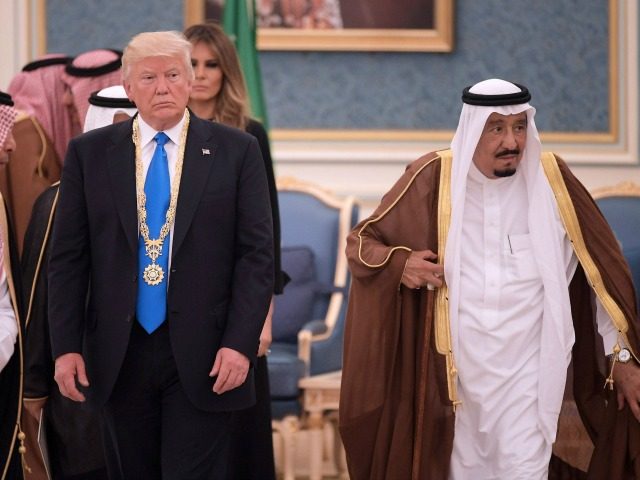WASHINGTON, DC — Saudi Arabia is a “vital” United States partner against violent extremism, as well as Shiite Iran’s expansion and aggression in the Middle East, argued former American officials testifying before a House panel Tuesday.
“Saudi Arabia is an indispensable partner for the United States and we must do what we can to support its transformation. We can be a great resource through public and private organizations in advising reforms of their educational system and their administration of Justice under Sharia Law,” Dr. Joseph Westphal, a former U.S. ambassador to the Sunni kingdom, told American lawmakers in written testimony.
The transformation alluded to by the former American diplomat refers to reforms he highlighted Tuesday while testifying before the House Foreign Affairs Subcommittee on the Middle East and North Africa, particularly plans to improve the country’s social and economic situation as proposed under King Salman bin Abdulaziz Al Saud’s National Transformation Plan and Vision 2030.
Dr. Westphal, now a senior global fellow at the University of Pennsylvania’s Joseph H. Lauder Institute of Management and International Studies, testified:
If the most conservative Muslim country in the world, a country and its citizens that have been continually criticized for fostering a strict and conservative form of Islam, Wahhabism, denying women their rights, violating human rights, etc., can advance a social and economic transformation that supports reform and modernization, it will be a positive example to the Arab world.
In her prepared testimony, Karen Elliott House, a senior fellow at the Belfer Center for Science and International Affairs at Harvard University’s John F. Kennedy School of Government, added:
The government not only has promised in its new Vision 2030 reform program a more moderate Islam, but actually taken bold steps to loosen social restrictions it allowed conservative Wahhabi clerics to impose on Saudis for the past several decades. Specifically, the so-called religious police, long free to roam streets enforcing veiling of women and gender segregation, have been banned from arresting people.
On Tuesday, the House Foreign Affairs Subcommittee on the Middle East and North Africa held a hearing on the challenges and opportunities for the U.S.-Saudi relationship, featuring testimony from three former Department of State officials who served under the previous administration.
Echoing another former American official, Dr. Westphal contended that the Saudis are no longer spreading conservative Islamic fundamentalism and are now “committed to stopping violent extremism” by disrupting the flow of funds to aid terrorist groups, among other things.
“We should not ignore Saudi Arabia’s past role in spreading conservative Islamic fundamentalism. However, this is not the Saudi Arabia of today. Saudi Arabia has been committed to stopping violent extremism and has been one of our strongest partners in this ongoing struggle,” said the former U.S. ambassador.
In his written remarks, Gerald Feierstein, the former principal deputy assistance secretary for the Bureau of Near Eastern Affairs at State, testified:
Saudi attitudes toward violent extremist organizations have been a subject of considerable debate within the U.S. and the west, with a number of observers alleging that Saudi Arabia’s religious views and social conservatism provided the ideological foundations of violent extremist groups from al-Qaeda to the Islamic State [ISIS/ISIL] and that Saudi citizens have both participated in and financed the rise of these groups. There is clearly some ambivalence among many Saudis about jihadist groups, and some have certainly been recruited by these groups, but allegations of widespread Saudi support for extremist groups appear generally overblown.
The U.S. government has accused Saudi Arabia of playing a role in the 9/11 attacks against the American homeland carried out by al-Qaeda.
Feierstein is now the director for Gulf affairs at the Middle East Institute.
Under President Donald Trump, the U.S. has expressed strong support for Saudi Arabia to pursue common aims — primarily against regional rival Iran — a move that marks a significant departure from former commander-in-chief Barack Obama who made a nuclear deal with Tehran and dismissively urged the Sunni Kingdom to “learn to share the neighborhood with Iran.”
“The good news for Saudi Arabia—and the world—is that Donald Trump has signaled with his visit to Saudi last month (the first president ever to favor Riyadh with his inaugural foreign trip) that the U.S. is reversing eight years of favoring Iran at the price of greater regional instability and frayed relations with Saudi Arabia,” said House.
While the majority of former U.S. officials, during the House panel hearing, advocated for pressing Saudi Arabia on political and social reforms through “quiet diplomacy” or “in private,” Tom Malinowski, who served as assistant secretary for democracy and human rights at Obama’s State, blasted the Sunni-majority country for its blatant disregard for human rights.
The former Obama official went on to criticize the Trump for telling the Saudis he would not “lecture” them on how to worship during his recent visit to Riyadh.

COMMENTS
Please let us know if you're having issues with commenting.